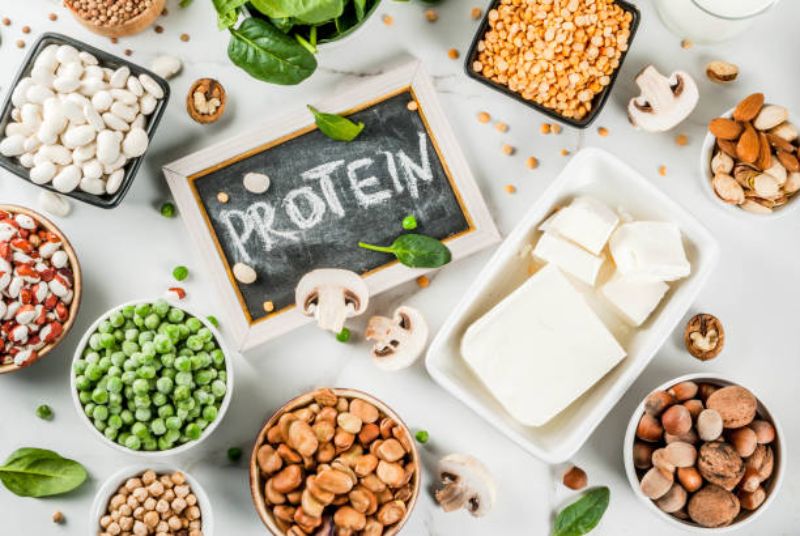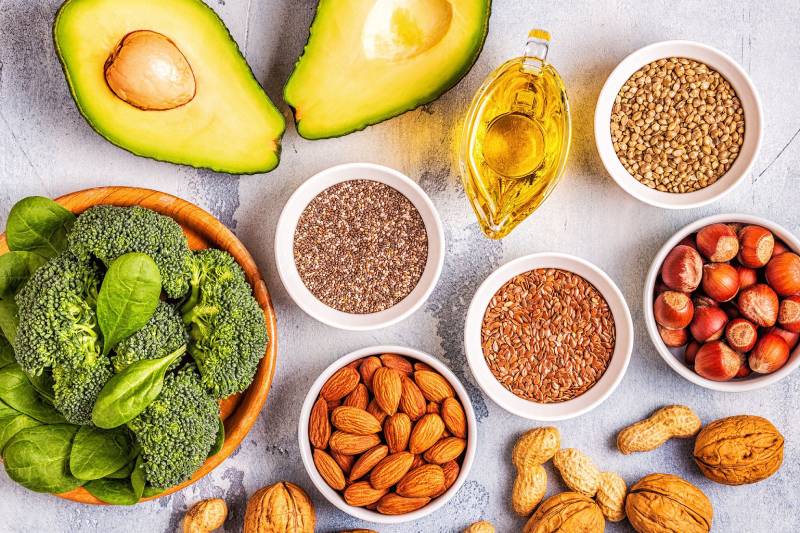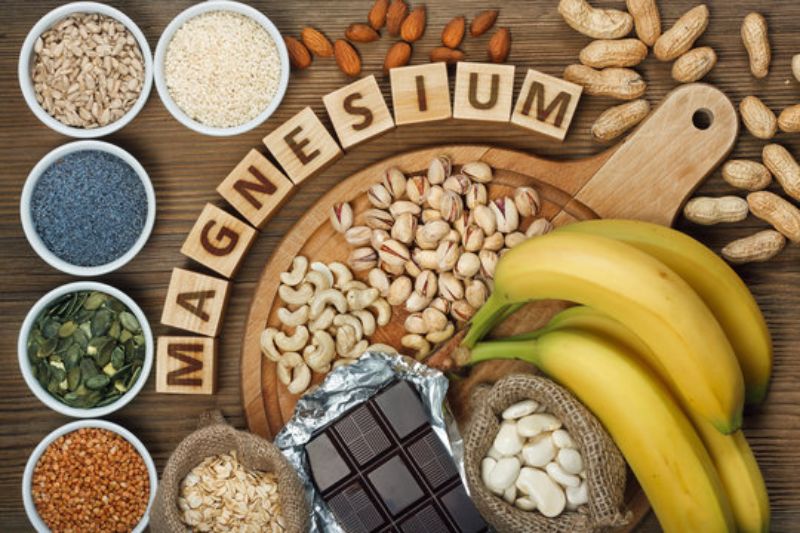
Diet therapy is a broad term for the alteration or adoption of a diet to prevent or treat a disease or to simply promote optimum health. In some cases, an alternative dietary lifestyle plan may be developed to eliminate certain foods to reclaim health
For example, if it is to treat obesity or excess weight, weight loss is closely related to a decrease in the number of calories released in the body; in fact, the energy balance must be negative, that is, the calories consumed must be lower than those burned. This is achieved not only by integrating a sports activity into the patient’s routine but also by changing the patient’s eating habits.
Nutrient classes
PROTEIN.

Protein is important for building body tissue and synthesizing enzymes. Enzymes are specialized organic substances that act to regulate the speed of chemical reactions in human metabolism. Twenty amino acids of the 100 or more occurring in nature make up proteins. Animals and plants are quick and available sources of what are termed “essential” amino acids; they are called essential because the body cannot build them internally. Normal growth and health are dependent upon these essential amino acids.
The FDA recommends that adults consume 50 grams (g) of protein a day, as part of a 2,000-calorie diet. A person’s daily value may be higher or lower depending on their calorie intake.
| male teenaged 14–18 | Protein RDA |
| child aged 1–3 | 13 g |
| child aged 4–8 | 19 g |
| child aged 9–13 | 34 g |
| female teen aged 14–18 | 46 g |
| female teenaged 14–18 | 52 g |
| female adult aged 19+ | 46 g |
| male adult aged 19+ | 56 g |
Protein sources
- Pulses
- Lentils
- Chia Seeds
- Quinoa
- Cottage Cheese
- Beans
- Green peas
- Peanut Butter
- Almonds
- Eggs
- Greek Yogurt
CARBOHYDRATES.

Carbohydrates provide most of the energy in the majority of human diets. Foods rich in carbohydrates are usually the most abundant and cheapest. The carbohydrates containing the most nutrients are complex carbohydrates, such as unrefined grains, tubers, vegetables, and fruits. Simple carbohydrates or sugars should be eaten in moderation since they are high in calories but low in nutrients.
AMOUNT OF CARBS-
The Recommended Dietary Allowance (RDA) For Carbohydrate 130 grams per day. This is the amount of glucose needed for optimum Brain and Nervous Systems.
Healthy Sources of Carbohydrates-
Carbohydrates in healthy food consisting of both animal and plant sources which include:
- Corn
- Sweet Potatoes
- Beets
- Oranges
- Apples
- Milk Products
- Bananas
- Vegetables
Unhealthy Sources of Carbohydrates-
Carbohydrates in Unhealthy food include:
- White Bread
- Artificial Sugar
- Pastries
- Soda
Other Highly Processed Foods
FATS.

Fats supply energy and essential fatty acids and promote absorption of the fat-soluble vitamins A, D, E, and K. The accumulation of body fat has become a serious health concern; almost two-thirds of Americans are considered overweight. Fats are compact fuels efficiently stored in the body for later use when carbohydrates are in short supply. These fatty acids are either saturated or unsaturated (monounsaturated, polyunsaturated, or trans unsaturated). Saturated fats, derived mostly from animal sources, have been found to raise the level of total cholesterol in the bloodstream, and certain unsaturated fats tend to lower the level of total cholesterol in the bloodstream.
Here are a few examples of suggested daily fat ranges for a low-fat diet, based on different calorie goals:
- 1,500 calories: about 50 grams of fat per day
- 2,000 calories: about 67 grams of fat per day
- 2,500 calories: about 83 grams of fat per day
Sources of Fat-
- Almonds
- Chia Seeds
- Peanuts
- Flax seeds
- Nuts
- Olives
INORGANIC MINERAL NUTRIENTS.

Inorganic mineral nutrients are required to build tissues. They are also important for muscle contractions, nerve reactions, and blood clotting. All of these mineral nutrients must be supplied in the diet. Minerals are categorized as major elements or trace elements. Major elements consist of calcium, phosphorus, magnesium, iron, iodine, and potassium. Trace elements include copper, cobalt, manganese, fluorine, and zinc.
Mineral Source-
- Nuts & Seeds
- Cruciferous Vegetables
- Cocoa
- Leafy Green
- Ancient Grains
VITAMINS.

Vitamins increase the breakdown and absorption of proteins, carbohydrates, and fats. Certain vitamins help form blood cells, hormones, nervous system chemicals, and genetic materials. Vitamins are classified into two groups: fat-soluble vitamins, such as A, D, E, and K; and water-soluble vitamins, such as vitamin C and the B-vitamin complex.
Naturopathy classifies the diet into three categories:-
1. Eliminative
2. Soothing
3. Constructive
Whenever a patient is subjected to undergo the treatment in Naturopathy he/she has to undergo these three phases. Accordingly, diet is prescribed.
1. Eliminative Stage – is the phase where the elimination takes place to have a favorable body condition free from toxins and morbid matter. The foods which are eliminative in nature are largely of this kind which includes water, vegetable/fruit juices.
2. Soothing Stage – When the patient is subjected to elimination he/she tends to get tired or weak. Also, the digestive system after a rest stage during the elimination not able to accommodate or digest normal food. Hence digestive system has to be soothened to get prepared for the normal digestion. Not only is that during the elimination there possibility of production of heat in the body, which has to countered. The foods which take care of this stage are Daliya, Khichdi, Boiled vegetables, fruits etc.
3. Constructive Stage- Once the above phases are tackled effectively, there is a need to prepare the body for normal functioning. The patient has to get adjusted to the normal routine of food and it should give extra energy to rebuild the structure of the body and to perform his normal duties.
The constructive diet is normal food habit of a person devoid of oils, fat, spices and unnatural foods like Maida, Sugar, Fast foods, Bakery foods etc. The preferred food are sprouts, salads etc.
| Vitamin (Common Names) | Recommended Dietary Allowance (RDA) or Daily Adequate Intake (AI)* | Upper Limit | |
| Women | Men | ||
| Vitamin A (preformed = retinol; beta-carotene can be converted to Vitamin A) | 700 micrograms (2,333 IU) | 900 micrograms (3,000 IU) | 3,000 micrograms (about 10,000 IU) |
| Thiamin (vitamin B1) | 1.1 milligrams | 1.2 milligrams | Not known |
| Riboflavin (vitamin B2) | 1.1 milligrams | 1.3 milligrams | Not known |
| Niacin (vitamin B3; nicotinic acid) | 14 milligrams | 16 milligrams | 35 milligrams |
| Pantothenic acid (vitamin B5) | 5 milligrams* | 5 milligrams* | Not known |
| Vitamin B6 (pyridoxal, pyridoxine, pyridoxamine) | Ages 19-50: 1.3 milligramsAges 51+: 1.5 milligrams | Ages 19-50: 1.3 milligramsAges 51+: 1.7 milligrams | 100 milligrams |
| Biotin (vitamin B7) | 30 micrograms* | 30 micrograms* | Not known |
| Folate (Folic acid; vitamin B9) | 400 micrograms | 400 micrograms | 1,000 micrograms |
| Vitamin B12 | 2.4 micrograms | 2.4 micrograms | Not known |
| Vitamin C | 75 milligrams*(Smokers add 35 milligrams) | 90 milligrams*(Smokers add 35 milligrams) | 2,000 milligrams |
| Choline | 425 milligrams* | 550 milligrams* | 3,500 milligrams |
| Vitamin D (calciferol) | Ages 19-50: 15 micrograms (600 IU)Ages 51-70: 15 micrograms (600 IU)Ages 71+: 20 micrograms (800 IU) | Ages 19-50: 15 micrograms (600 IU)Ages 51-70: 15 micrograms (600 IU)Ages 71+: 20 micrograms (800 IU) | 100 micrograms (4,000 IU) |
| Vitamin E (alpha-tocopherol) | 15 milligrams | 15 milligrams | 1,000 milligrams |
| Vitamin k (phylloquinone, menadione) | 90 micrograms* | 120 micrograms* | Not known |
Ten Practical Suggestions Regarding Food
1. Always be mindful of the wholesomeness (or otherwise) of food combinations.
2. If you are not hungry, don’t eat.
3. Do not eat when you are under physical or mental tension.
4. Do not eat or drink anything that is too hot or too cold.
5. Chew the food well.
6. Do not drink water with meals.
7. Do not stuff the belly with food.
8. Rest for a while after meals.
9. Do not take any food while suffering from fever or any other ailment.
10. Eat only one meal, or take only fruits, one day every week.
